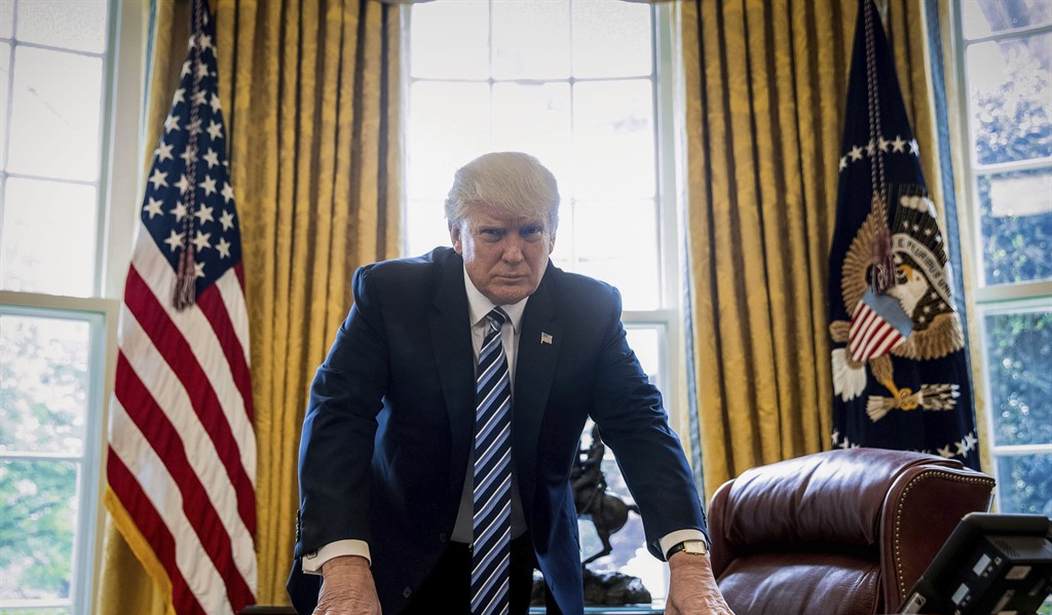President Donald Trump has been in the White House over 100 days, and for some people it means the U.S. is operating without a government. Foreign Policy columnist Rosa Brooks put forth the idea suggesting people should start thinking like scientists to avoid crying over Trump’s ascension to power. Her main belief why the U.S. doesn’t have government: open governmental positions are remaining just that…open.
Of the more than 550 key jobs requiring Senate-confirmed political appointees, 530 remain vacant, and President Trump has refrained from nominating anyone to fill most positions.
As a result, we are as close right now as we will likely ever be able to get to not having a government at all. At the Defense Department, only one political appointee — Secretary of Defense Jim Mattis — has been nominated and confirmed; the other 52 top DoD positions are vacant. At the State Department, only three out of 119 key positions have been filled. The halls of other government agencies are similarly empty.
Meanwhile, President Trump froze most federal hiring, ensuring, for the experiment’s sake, that the executive branch is also short-staffed at middle and lower levels. Similarly, Trump has asked Congress to slash the budgets for most civilian agencies, in the hopes that those employees who remain will be unable to fund any programs. He has moved quickly to eliminate many of the regulations put into place by previous governments, leaving private sector actors more free to pollute the environment and fleece the general public. This week, President Trump announced his intention to precipitously slash corporate taxes as well, in an apparent effort to reduce federal revenues and thus further reduce the federal government’s ability to function.
If only this were the truth, and the federal government would return to its constitutional limits!
The truth is the federal government is still chugging along just fine, mostly within extra-constitutional authority. The military is still conducting combat missions in Iraq (one service member was killed on Saturday) without Congress declaring war. ICE is still conducting raids in Texas, despite the fact the federal government only has power to decide who becomes a citizen, not who is let into the country. People are still getting Social Security benefits even though that’s no where in the Constitution, and the FDA is still approving drugs for the public’s use. The fact Congress also approved money for the government to be funded for another week, shows it’s still in business (even if a government shut down would have been pretty nice).
But Brooks isn’t daunted by this evidence, and posits certain theories into what could happen in four years.
But if you think like a scientist, you will see instead this as a wonderful opportunity. Will America survive? Will it slide into authoritarianism, collapse into civil war, or simply slump into permanent economic and political decline? Will the world successfully adapt to a government-less United States? Will China become the new global superpower? Will a rudderless Europe fall victim to resurgent nationalism and become a Russian dependency, or will it step up to take America’s place as champion of liberal cosmopolitanism? We’ll find out!
Newsflash for Brooks: America has been sliding into authoritarianism ever since George Washington decided the military would put down the Whiskey Rebellion. The descent has only increased in recent decades with the New Deal, the Great Society, the Patriot Act, NSA spying, Obamacare, presidential power grabs, etc. Historians and political commentators should remember this, if Trump decides to speed up the descent like a golf ball rolling down a hill.
It should also be pointed out Trump’s decision to put in a hiring freeze doesn’t mean the American government is going to completely collapse. The leviathan of government has become so large it’s almost a self-sustaining entity. Glen Cook suggested as much in his excellent series The Black Company where one character says the Empire will survive for decades without any problems because of the bureaucracy. It’s true the wheels on the machine will eventually fall off, but it’s highly doubtful it will be because Trump decided to not fill middle and lower level management.
As for whether Europe will fall into nationalism because it’s “rudderless,” that’s up to Europeans to decide. The U.S. shouldn’t be Europe’s rudder, nor should it be trying to influence elections on the continent. This hasn’t stopped America before, but there’s no reason for the U.S. to keep doing so. If the French want an almost fascist in Marine Le Pen to run their country, it’s their choice. If Scotland wants to secede from Great Britain, it’s their choice. If Greeks decide to keep the socialists in power, that’s their choice. The U.S. has no business dictating what happens, and people like Brooks who believe America needs to be Europe’s “rudder” are just plain wrong. The only way the U.S. should be getting involved in Europe is by letting companies trade with whoever they wish. Free trade is America’s best weapon, despite concerns from the president on “raw deals” and stuff like that.
The final fact is this: a small government doesn’t necessarily mean a weaker one. Trump is obviously a proponent of a smaller government, which is still able to hold certain cards to force private individuals and businesses to do what he wants. He may have nominated people who believe in deregulation into certain posts in government, but Trump still wants the country to be “Team America: World Police.”
The U.S. still has a government. It’s just a government that’s decided to skip filling a few positions.








Join the conversation as a VIP Member